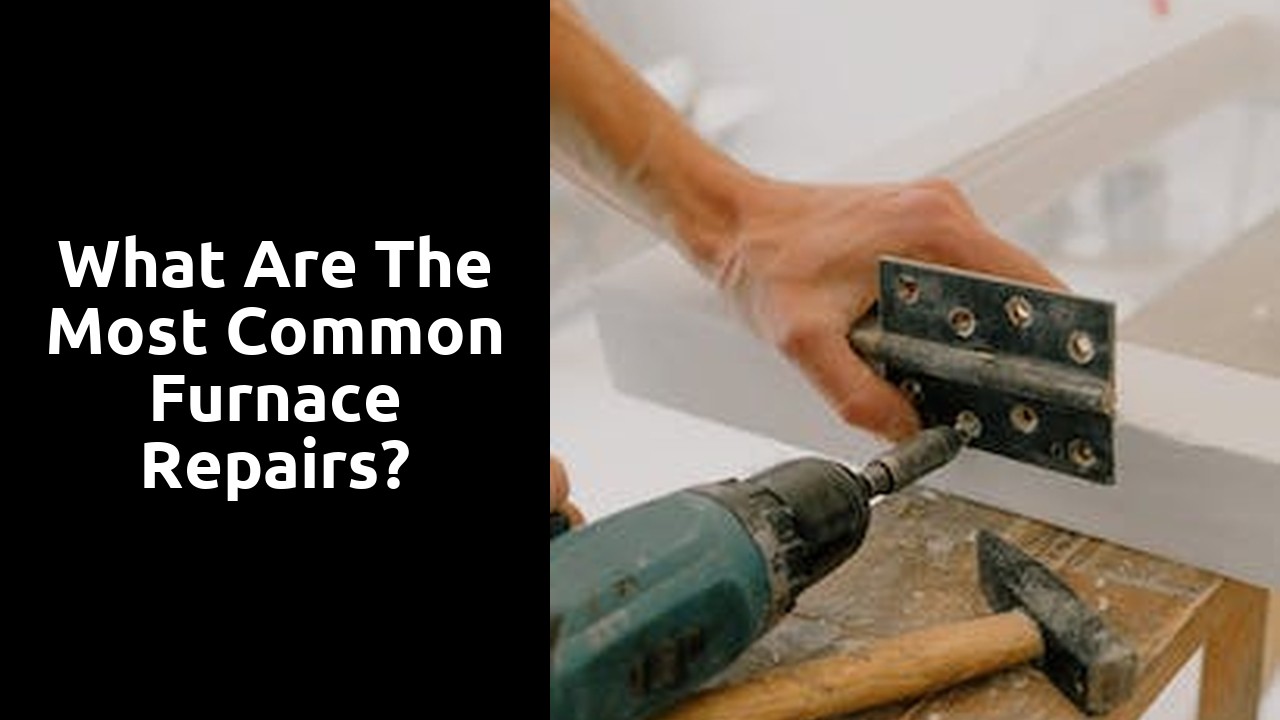What are the most common furnace repairs?

Table Of Contents
Lack of Maintenance
Regular maintenance is crucial for the optimal functioning of your furnace. When maintenance is neglected, various issues can arise that may lead to costly repairs. One common problem due to lack of maintenance is dirty filters. Over time, filters can become clogged with dust and debris, restricting airflow and causing the furnace to work harder to heat your home. This increased strain can result in higher energy bills and potential damage to the system over time. Regularly replacing or cleaning filters is a simple yet essential task to prevent this issue and ensure efficient operation of your furnace.
The Impact of Neglecting Regular Furnace Maintenance
Regular maintenance of your furnace is crucial for its efficient operation and longevity. Neglecting routine maintenance can lead to a myriad of issues that can significantly impact the performance of your heating system. One of the main consequences of not servicing your furnace regularly is reduced energy efficiency. A poorly maintained furnace has to work harder to heat your home, resulting in higher energy bills and unnecessary strain on the system.
Moreover, neglecting regular furnace maintenance can also lead to safety hazards. Dust and debris can accumulate in the system over time, increasing the risk of a fire hazard or the release of harmful carbon monoxide gas into your home. By scheduling annual inspections and tune-ups for your furnace, you can ensure that any potential safety risks are identified and addressed promptly, protecting both your home and your family.
Electrical Problems
When it comes to furnace repairs, electrical problems are a common concern that homeowners face. Identifying these issues early on is crucial to prevent further damage to the system. One of the most common electrical challenges in furnaces is a faulty thermostat. A malfunctioning thermostat can lead to inconsistent heating levels or a complete failure of the system to turn on.
Another common electrical problem is blown fuses or tripped circuit breakers. This can be caused by various issues such as electrical surges or an overloaded system. Regularly checking the electrical components of your furnace can help spot these issues before they escalate. If you notice any unusual noises, sparks, or a burning smell coming from your furnace, it is important to promptly call a professional to address the electrical problem and ensure the safety of your home.
Identifying Common Electrical Challenges in Furnaces
One of the most common electrical challenges in furnaces is a malfunctioning thermostat. When the thermostat is not working properly, it can cause the furnace to cycle on and off erratically, leading to temperature fluctuations in the home. This can result in discomfort for the occupants and inefficient operation of the furnace, leading to increased energy bills.
Another prevalent issue is faulty wiring within the furnace system. Worn-out or damaged wiring can impede the flow of electricity, leading to various problems such as the furnace not turning on, blowing cold air, or short-circuiting. It is important to regularly inspect the wiring and connections within the furnace to ensure they are in good condition to prevent electrical issues and maintain the overall functionality of the heating system.
Motor Wear and Tear
Motor wear and tear is a common issue that can arise in furnaces over time. Due to constant use, the motor in a furnace can experience wear and tear, leading to decreased efficiency and potential breakdowns. This can be especially problematic during peak usage times when the furnace is working harder to keep your home warm.
Regular maintenance is key to extending the lifespan of your furnace's motor. This includes ensuring that the motor is well lubricated, clean, and free from any obstructions. By addressing motor wear and tear proactively, you can prevent more serious issues from arising and ensure that your furnace continues to operate efficiently during the cooler months.
Extending the Lifespan of Your Furnace's Motor
To ensure your furnace's motor maintains its longevity, regular maintenance is essential. One key practice to extend the lifespan of your furnace's motor is to keep it clean and free of debris. Over time, dust and dirt can accumulate on the motor, causing it to work harder than necessary and potentially leading to premature wear and tear.
In addition to keeping the motor clean, scheduling routine inspections by a professional technician can help identify any potential issues early. By catching small problems before they escalate, you can prevent costly repairs and ensure that your furnace operates efficiently for years to come. Regular maintenance and timely repairs are crucial in maximizing the lifespan of your furnace's motor and overall system performance.
FAQS
What can happen if I neglect regular maintenance for my furnace?
Neglecting regular maintenance for your furnace can lead to various issues such as reduced efficiency, higher energy bills, and potentially costly repairs down the line.
How can I identify common electrical problems in my furnace?
Common signs of electrical problems in a furnace include tripped circuit breakers, flickering lights when the furnace is running, or strange noises coming from the unit. If you suspect an electrical issue, it's best to call a professional for assistance.
How can I extend the lifespan of my furnace's motor?
To extend the lifespan of your furnace's motor, it's important to schedule regular maintenance, change the air filter regularly, and ensure proper ventilation around the unit. Additionally, addressing any unusual sounds or performance issues promptly can help prevent motor wear and tear.
What should I do if I notice my furnace is not working properly?
If you notice your furnace is not working properly, it's best to contact a professional HVAC technician to assess the issue. Trying to troubleshoot or repair the furnace on your own can be dangerous and may void any warranties on the unit.